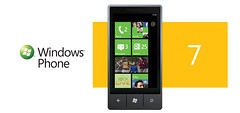The key point here is that WhatsApp is a prime example of what is often called an "Over-The-Top" or "OTT" application. It uses the data channel on a mobile phone to provide services. Here's another key point from the Facebook news release:
- Messaging volume approaching the entire global telecom SMS volume.
The traditional telecom companies ("telcos") have already seen their voice revenue seriously eroded by Skype and so many of the other OTT voice applications (such as Viber, which was just acquired) and they've been watching SMS traffic and revenue plateau and decline.
WhatsApp was already one of the major players in the mobile messaging space... indeed I have friends in Europe who tell me they can't remember the last time they sent an actual SMS message because they use WhatsApp for all their messaging. Their usage, too, is not just about the "free" cost of WhatsApp messages - it's also about the richer messaging experience they can get over WhatsApp versus plain SMS. They can send photos, display an online status, engage in group chats and much more that was just either difficult or expensive to do with SMS. And... they can send messages to anyone using the app regardless of where they are in the world. They don't have to worry about fees to send SMS messages internationally.
The user experience is so very simple and easy.
Plus, WhatsApp (and other OTT messaging apps) solves the directory issue by just using your mobile phone number as the identifier within their system. With a quick approval of access to your contact list you can immediately start sending messages to any other WhatsApp users. You don't have to try to get anyone's number... it's all stored in the big giant (and constantly growing) WhatsApp user directory.
And now... instead of WhatsApp being a venture-backed startup out there building its service, it is now backed by Facebook, at this point one of the more powerful corporate entities on the global stage today.
Note, too, that Facebook has also been an OTT messaging player for some time with their "Facebook Messenger" application, which even introduced voice calling at one point in the US. In a post today, Mark Zuckerberg writes about how the two apps will co-exist for different communities of friends/contacts (see also the WhatsApp blog post). Zuckerberg also writes of how WhatsApp is, in his mind, on its way to connecting a billion people.
And that is really what should concern the telcos - one of the largest OTT messaging apps is now owned by the largest global social network.
A Larger Danger
There is, though, a broader concern, not just for the telcos but for all of us. All of these OTT messaging apps... whether they are WhatsApp, Line, Facebook Messenger, Apple's iMessage, Google+ Hangouts, Skype ... or any other... are creating SILOS of users.
They are proprietary "walled gardens" of messaging.
You can ONLY send messages to people who have the app installed on their mobile device.
Say what you will about SMS, but the reality is that you can send a message to pretty much anyone with a mobile phone, anywhere on the planet. No apps to download... it's just a "feature" of having a mobile phone.
WhatsApp requires the app. And specifically the app from Whatsapp and not anyone else's application. WhatsApp does NOT have an open API that anyone can use. In fact, WhatsApp's legal counsel was recently sending DMCA takedown notices to crack down on projects interacting with Whatsapp (presumably in the run-up to this acquisition). WhatsApp - and now Facebook - are in total control of the user experience and interaction for mobile messaging on the service.
Is this REALLY what we want for the future of mobile messaging?
Way back in 2007, I wrote about how "e-mail" was returning into walled gardens and while today's players are different than the diagram I had then, the situation is similar.
This is not the open Internet.
And that should concern us all.
If you found this post interesting or useful, please consider either:
- following me on Twitter;
- adding me to a circle on Google+;
- following me on App.net
- subscribing to my email newsletter; or
- subscribing to the RSS feed


